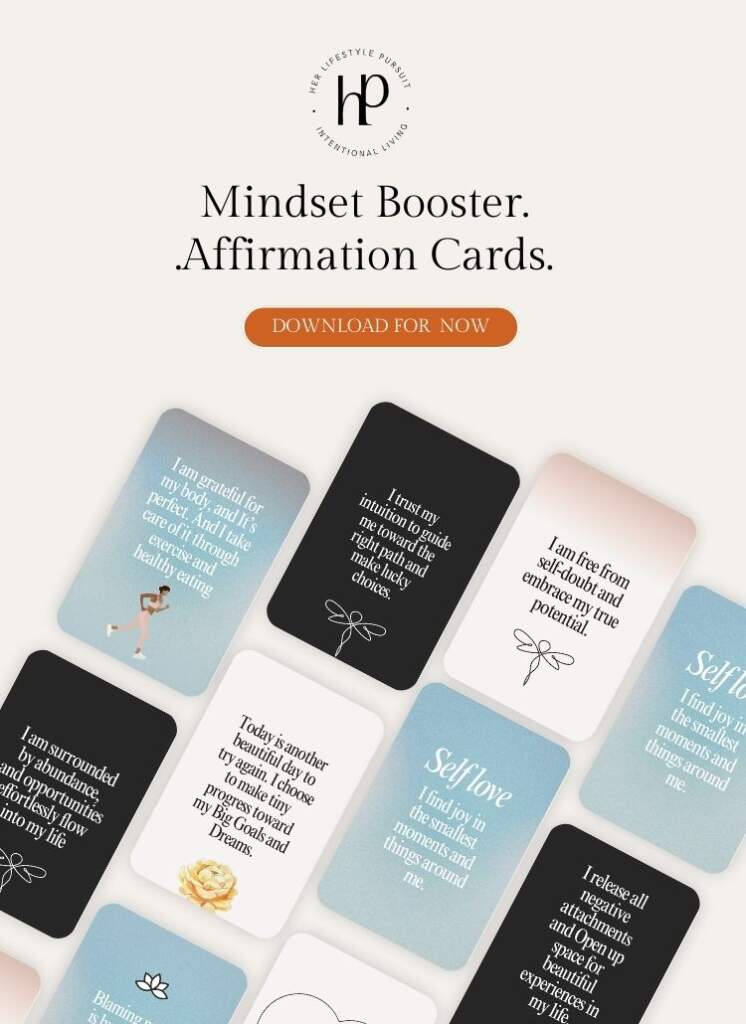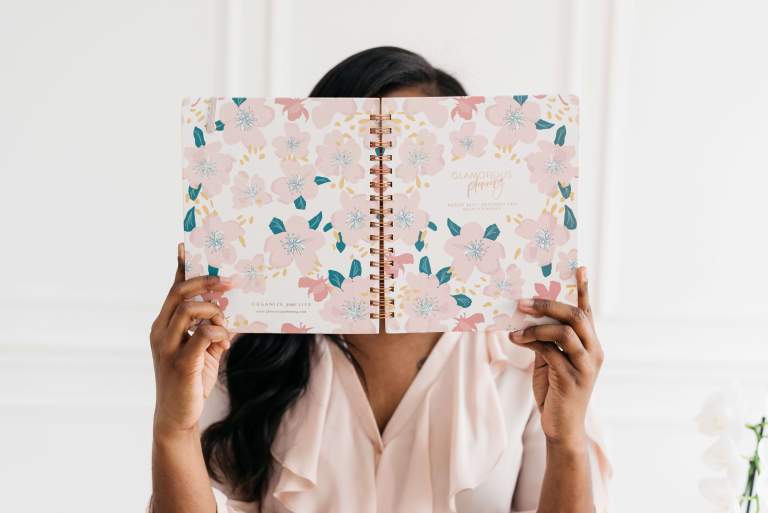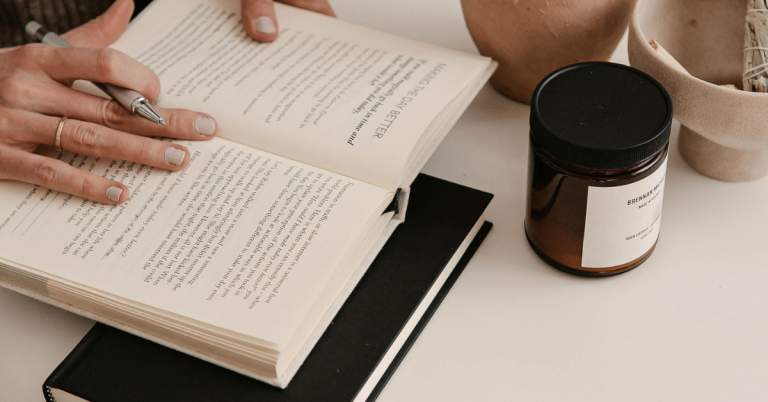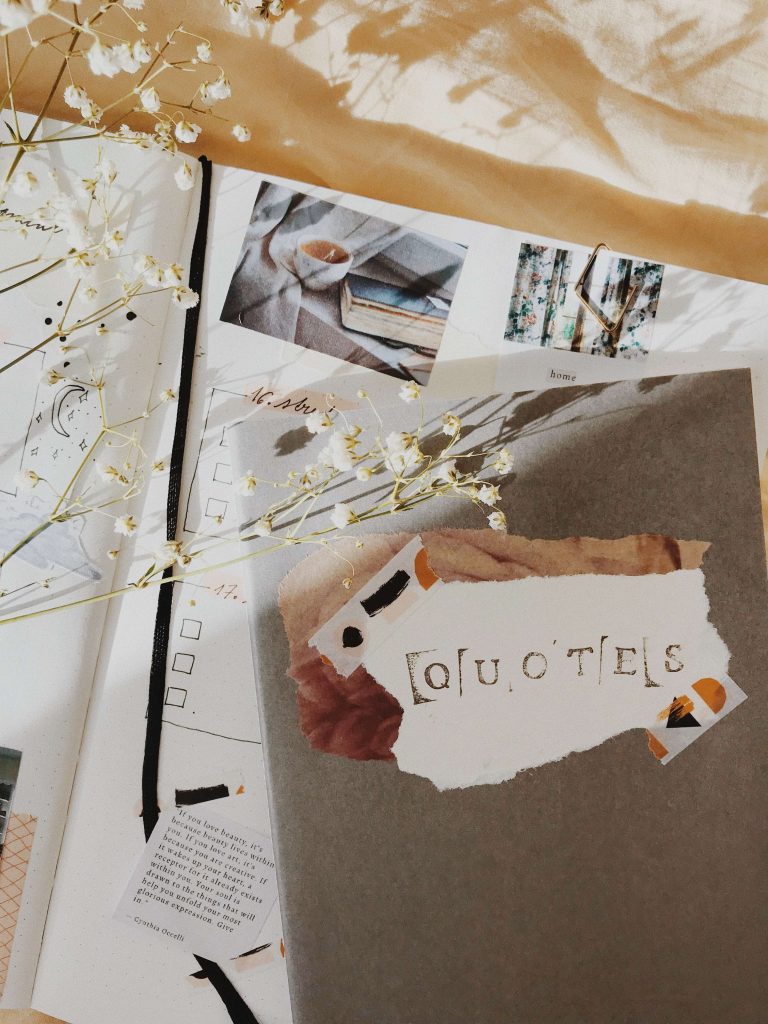
A journal is not just a book or place where you unload all negative emotions.
Your journal can be a place of healing, where you find and discover purpose, find your most authentic self, and heal from Trauma and anxiety if you know how to practice intentional Journaling.
Most teenagers keep a journal as a place where they hide all their darkest thoughts, and just the sight of you trying to open their spiral book (journal) is like asking them to open a pandora’s box of secrets.
As a teenager, I also kept a journal, and it was a place where I shared my happiest to darkest thoughts.
However, that journaling method will help no one heal, or become self-aware and eventually move on to practicing self-improvement.
Intentional Journaling helps you become more self-aware. It trains you and allows you to open up to your deepest emotions, and eventually helps you find a path.
According to Dr Elizabeth Gilbert, the Head of Research at PsychologyCompass, “decades of research” back up the benefits of Journaling when it comes to reducing anxiety, easing depression, working through Trauma, and setting goals.”
A sentence from Dr Gilbert’s text that’s been sticking with me is, “If stressful things are happening in your life, journaling trains you to stop, react, and make sense of it all.”
And “Even just make a narrative about it. Tell it in a story in a way that makes sense.”
These words by Dr Elizabeth Gilberts make sense to me because I have been at a place where sometimes I find it difficult to quantify my emotions.
So, Journaling helps me process my emotions and eventually helps me see a pattern that I can accept and work on to feel better.
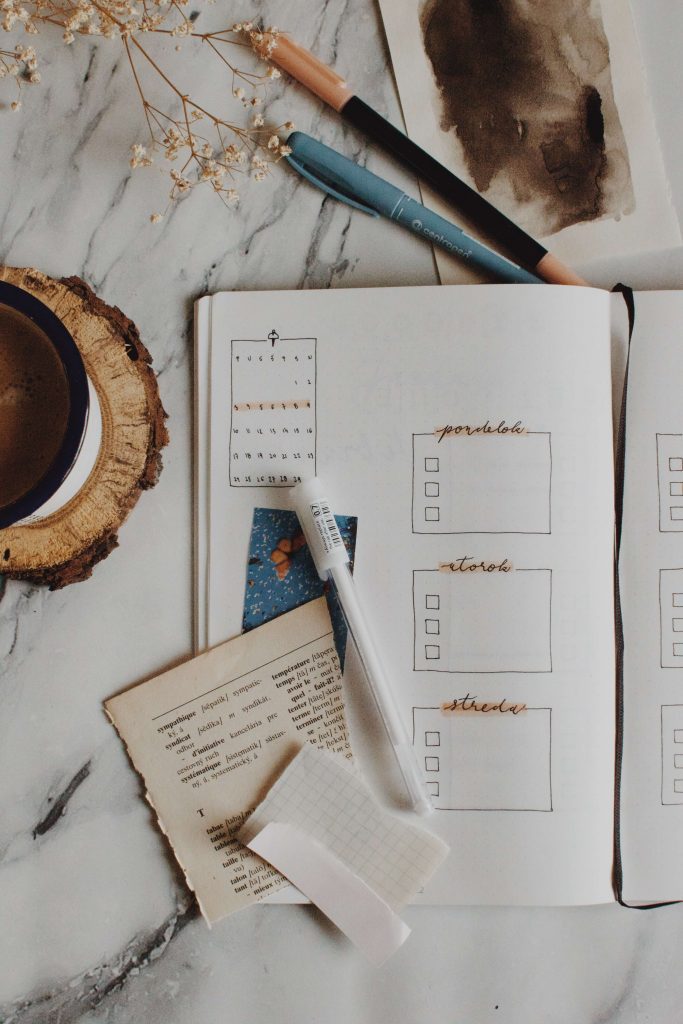
What is Intentional Journaling?
Intentional Journaling, simply put, is Journaling with an expectation of a positive outcome.
Intentional Journaling allows you to be completely honest with yourself, be vulnerable, seek changes, and process your thoughts and emotions using your journal.
A journal is not just a place where you dump all negative emotions and run away, only to return when hurt again.
Journaling is supposed to be habitual, and it’s okay to skip a few days.
However, you need to learn to journal intentionally, even if creating just 5-minutes a day to let out your heart.
Instead of using your journal to dump your thoughts, start building an intentional journaling habit where your journal becomes a sanctuary for healing, a place where you process your thoughts.
So, in this blog post, we’ll go over the benefits of intentional Journaling, and how to start Journaling even if you are a beginner.
Tips for building journaling habits and routine, effective intentional journal techniques, and finally, some intentional journaling prompts to help you get started.
Benefits of Intentional Journaling
Journaling is therapeutic and can help you become vulnerable. Your journal content is only for your eyes, so you are permitted to be vulnerable.
However, do not turn your journal into a dark place. Journal should not be a chore for you.
Journaling is like listening to music or doing your favorite activity. It can help you unravel your deepest self. So, here are some benefits of intentional Journaling.
1 | Intentional Journaling Helps you Unravel Yourself
Practising intentional Journaling can help you unravel and learn more about yourself.
It will help you ask deeper questions about yourself, especially when using self-discovery journal prompts or writing your journal in a brain dump style.
Lately, I have been asking myself specific questions about my business and if I want to continue running and operating the business.
It was a difficult conversation I wasn’t ready to have. Still, it was a necessary conversation because I felt I was no longer living and doing a business that aligned with my purpose.
So, in evaluating myself and how I truly feel, I started journaling about my business and using some entrepreneur journaling prompts and self-discovery journal prompts.
For you, it may not be business. Maybe you lack self-confidence or procrastinate a lot.
Maybe you feel unloved and are not happy with a particular part of your body.
Journaling can help you discover and unravel situations and things about yourself.
You will realize that some negative emotions or ideas about yourself are not valid and cannot be entirely accurate.
2 | Processing your Thoughts and Emotions with Intentional
Writing in a journal about how you feel concerning a particular situation helps you process your thoughts and emotions.
Journaling can help you discover grey areas and be a check-in tool.
There are times in your life when you feel balanced, motivated, and have your life put together.
While there are other times when you feel out of place, and you begin to question what you do.
Journaling intentionally can help you set your priorities right. When you form healthy journaling habits, you can process your thoughts and figure out how you feel using your journal.
Additionally, when you process your thoughts and emotions, you will discover patterns, and being able to put down how you feel can make you feel better.
3 | Intentional Journaling Helps Reduces Stress and Anxiety
Journaling is a powerful tool for addressing issues and eventually reducing stress and anxiety.
Intentional Journaling is a form of reflective writing, and it can help you search yourself deeper, find problems, patterns, and eventually a solution to address them.
Getting your thoughts down on paper helps you identify the thought causing you stress and anxiety, and if you can identify a problem, you can find a solution.
Journaling helps calm and clear your mind and releases unexpressed negative feelings and emotions.
Intentional Journaling enhances your self-awareness and triggers and allows you to evaluate your experiences.
4 | Intentional Journaling Helps you Track Progress and Growth
Writing about your day-to-day activities, challenges, goals, and successes in a journal can help you track your progress in life, health, business, and personal development journey.
When making life changes, you realize that it’s not a one-off activity or action but involves waking up each day and intentionally letting go of bad habits and building healthy and positive habits.
You can set your goals and write them down in a journal, use a habit tracker to track your goals, and don’t forget to add dates to these goals and pages.
After some time, it could be in months, weeks, yearly or quarterly, revisit your journal and reflect on how far you’ve come.
5 | Journaling Helps You Set Your Tone for The Day
Journaling is an excellent way to have a brain dump (freewriting technique), and this can help you decipher your emotions and how to fix it.
Personally, when I journal in the morning, it makes me feel refreshed. And like I know my T’s, I can easily connect the dots.
However, you may not have the luxury of Journaling in the morning. Maybe you journal at night, but having a brain dump gets you pumped up for the next day.
Intentional Journaling creates an avenue to reevaluate yourself, discover your deepest emotions and struggles, find a pattern, and allow you to express yourself without holding back.

How to Start Journaling Intentionally for Beginners
Starting a journal can be very scary as many bother if they can stick to a routine, commit to growing and Journaling, or even the slightest worry such as having beautiful writing.
However, the thought of Journaling is not supposed to scare you. So, here are some tips for building Intentional Journaling habits and routines;
1 | Choose a Journaling Type or Technique
Choosing an effective journaling technique that works for you is essential if you want to journal and build an intentional journaling habit.
If you don’t enjoy Journaling, it becomes a chore.
When Journaling becomes a chore instead of an activity you enjoy and look forward to. You will become inconsistent or maybe not get the best out of it.
Pick any journaling type or technique. It could be free handwriting or brain dump, bullet journaling, art journaling, morning pages, goal journaling, gratitude journaling, mindfulness journaling, prompts Journaling, etc.
I love practicing bullet journaling, brain dump, prompt Journaling, and goal journaling.
Although I do not use all techniques daily, I select a journaling technique according to my mood and the goal I expect after Journaling.
For example: In March 2022, I did more of a brain dump and mindfulness Journaling because I was going through a phase in life and business.
And I needed a channel to express exactly How I feel and discover patterns and solutions.
If you are unsure which journal technique to try, read on, and I will explain some journal techniques you could try.
2 | Set Aside Time a Day and Establish a Routine
Practising consistent intentional Journaling can be a problem, especially if you are a beginner.
To journal consistently, you need to set aside time a day and establish a routine.
It could be 5-10 minutes a day. You don’t have to journal for too long, like two hours or more.
Establishing intentional journaling routine changes how you journal or appreciate the benefits you get from journaling.
So, if you’re struggling with establishing a journaling routine, or you keep getting interrupted, try Journaling for 5-10 minutes!
It’s not a lot, but it’s enough time to get down a few thoughts.
When writing a journal, you must create a goal and establish a routine that works for you.
According to Dr Gilbert on Journaling, “Start with a goal for your journaling that feels realistic,” she says.”
3 | Set Boundaries with Your Family
Setting boundaries or creating a few minutes out of your days to have “your time” is not selfish.
Maybe you are a parent, and your kids demand your attention all around the clock.
You may get caught up with parenthood that you feel you are losing yourself.
This is the time to set boundaries and create a few minutes to hours in a day for yourself.
Speaking with one of my friends who happens to be a mother of two, she says how she gets some time to journal and have her “ME TIME” in the morning.
She wakes up at 5 am daily, takes a warm bath, reads, journals her thoughts, or practices a bit of self-care.
You could tell your partner that you are trying to create an intentional journaling habit and would need their help in handling the kids while you do this.
Or you can put your kids to sleep, keep them occupied with activity and spend some time alone with your thoughts, and journal.
4 | Use the Right Journaling Tool
Using the proper writing tools will help set your mood for Journaling.
Have you ever gotten a new set of writing supplies and started craving an opportunity to write?
However, not everyone practices writing by hand type of Journaling.
Maybe you prefer digital-style Journaling where you journal using apps for Journaling and online platforms.
So, whatever method you prefer, try searching for good options and better resources that will set you in the mood.
I’m a paper and pencil girl, and I prefer writing on paper, down to planning and goal setting. This helps strengthens my memory and makes it easy for me to reflect.
5 | Set the Mood and Create a Journaling Environment
Journaling is about you genuinely expressing your thoughts and trying to gather those unexpressed feelings and emotions into words.
Therefore, a calm, enabling journaling environment will be best to allow you to be at peace and intentionally journal how you feel.
You need to find and create an environment where distraction is minimal as you write and journal.
A calm environment helps you set the mood for Journaling.
A few suggestions for creating a Journaling Environment;
1) Silent and put your phone away
2) Turn off your television
3) Turn on the essential oil diffuser or candles
4) Play soft music in the background if you don’t mind
5) Grab a cup of coffee or your favourite drink (for me, I love having a chilled cup of Soree drink).
6) Wake up early before anyone else, (this is for those who live with their family or have children. (Remember my friend who wakes up early and spends the first 2 hours of her day alone?).
6 | Focus on Simplicity and Pour out Your Soul
The idea of Journaling shouldn’t make you feel anxious.
Journaling should make you feel calm, assuring, and like, “oh, I feel like I’ll be seeing a therapist that can help me today.”
To avoid seeing intentional Journaling as a scary process, try keeping it simple.
Don’t bother having fancy writing that looks polished or using a using journal created by a well-known author.
I love the freewriting or brain dump journaling technique because it allows me to explore myself, be open, and pour out my deepest emotions.
So if you feel anxious or scared to journal, try pouring out your soul, and don’t even look at what your handwriting looks like as you explore your inner and deepest thoughts.
7 | Examine How you Feel Before Journaling
It is essential to examine how you feel before Journaling, as this will help you identify the type of journaling technique to adopt for the day.
For instance:
When I feel unmotivated and battling impostor syndrome, I prefer using the brain dump journaling technique as this will help me find the cause of that feeling and the patterns associated with it.
However, I try using positive affirmation journal techniques when I feel I’m losing my self-confidence or questioning my choices.
In 2018, positive affirmations, journaling techniques, and prompts helped me kick out my inferiority complex, self-hate, and lack of self-confidence.
So, ask yourself how you feel and use the proper journaling technique to get the most Journaling, and this will help you build intentional journaling habits.
8 | Use Journal Prompts if Blank Pages Scare You
If writing on blank pages scares you or makes you feel lost, you don’t know where to start.
Then start journaling using some journaling prompts for personal growth and development.
Some Personal Growth Journal Prompts Include;
1) How can I make the most out of my day?
2) What are some positive habits you are developing
3) What are the negative habits you’d like to drop
4) What are your small wins?
5) How can you step outside your comfort zone to grow?
6) In what ways do you feel whole and enough? How can you remind yourself that you’re enough?
7) What makes you feel powerful
8) What are the action words that fuel your mind?
9) In what ways do you embrace your authentic self, even if it doesn’t align with the expectations of others
10) How can you be better at what you do?
11) Do you love yourself enough?
12) Do you do things you hate just to impress others
13) What are situations that happened in the past that you would never want to repeat?
14) What’s your biggest insecurity
15) Do you need people’s approval? If yes, who’s, and should it be so?
Want to go on a self-discovery journey? Read this guide on Self-improvement, self-love, and personal growth Journal Prompts.
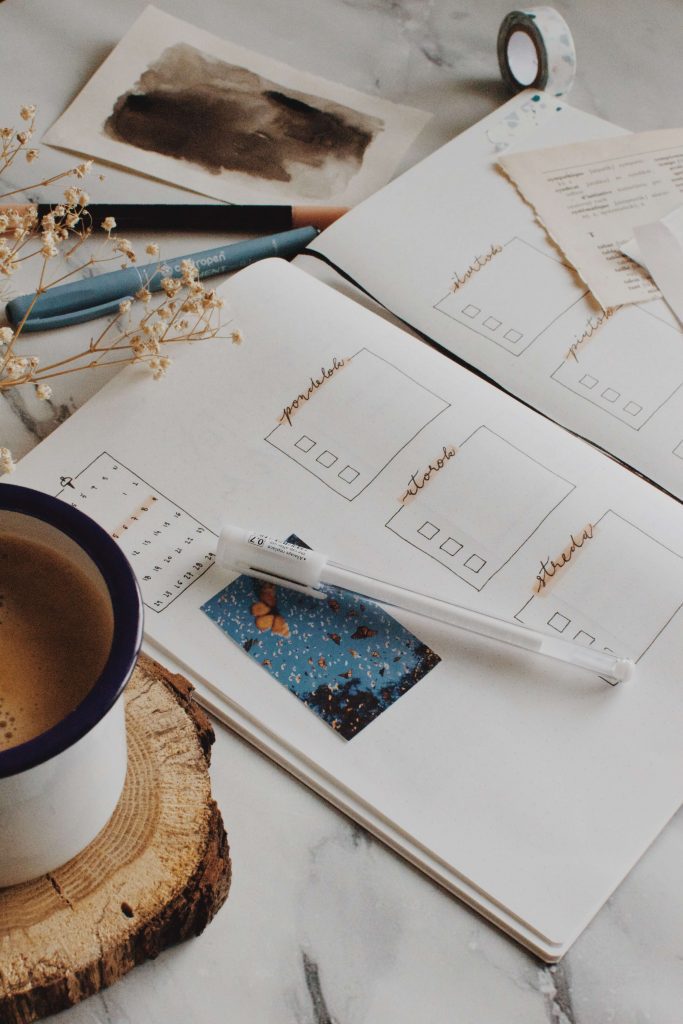
Ways to Journal Effectively: Types of Journaling Techniques
1 | Free Writing or Brain Dump
Freewriting journaling techniques involve setting a timer and allowing your thoughts to flow uncensored, and unfiltered as you write.
Brain dump or freewriting allows you to be completely honest with yourself, search, and find answers to your unexpressed emotions.
Freewriting is one of my favorite journaling techniques. If you have difficulty building a journaling habit, consider using this technique for 5-10 minutes daily.
2 | Morning Pages
Journaling in the morning is one of the most popular forms of Journaling.
I love to journal in the morning as it sets the mood for the rest of the day.
This journaling technique originates from Julia Cameron, an American teacher, and author.
On her website, Cameron describes ;
“Morning Pages are three pages of longhand, stream-of-consciousness writing, done first thing in the morning. There is no wrong way to do Morning Pages. They are not high art, not even “writing.”
“They are about anything and everything that crosses your mind– and they are for your eyes only. Morning Pages provoke, clarify, comfort, cajole, prioritize and synchronize the day at hand.
Do not over-think Morning Pages: just put three pages of anything on the page…and then do three more pages tomorrow”.
Read more about morning pages in Julia Cameron’s international bestselling book, The Artist’s Way: A Spiritual Path to Higher Creativity.
3 | Daily Diary
Keeping a daily diary is common among high school students, teenagers, and adults.
Daily diary journaling is more personal as it focuses on writing about your personal and private life, events, and experiences.
However, your daily diary can become a sad place with lots of negative emotions if you don’t practice intentional Journaling.
That’s learning to journal from a place of peace instead of anger.
4 | Unsent Letter
Have you ever tried using the unsent letter journaling technique?
You write a personal letter to yourself, and you don’t have to mail this letter.
The unsent letter journaling method is an intentional journaling technique that can help you heal from hurt, forgive those who wronged and have yet to seek forgiveness, gain closure, move from the past and even gain self-love and confidence.
You can write an unsent letter to your future self stating all the things you hope to become and achieve.
Also, writing an unsent letter to your younger self can help you gain closure, heal from hurt, and forgive yourself for past mistakes.
5 | Mindfulness Journaling
Mindfulness journaling involves expressing and examining yourself, your heart, and your head to discover why you feel or react in a certain way.
These feelings could be love, anger, peace, hatred, happiness, or frustration.
It involves meditating, exploring, and searching your inner self, paying attention to details, and discovering solutions to situations.
This is one intentional journaling technique that could transform your personal growth journey.
6 | Bullet journaling
Bullet journaling is an organizational style of Journaling that involves using a to-do list, schedule reminders, and checklists to plan your day and activities.
Also known as BuJo, the bullet journaling technique is an organization tool created by digital designer Ryder Carroll.
The bullet journaling technique is so popular these days, and lots of blogs out there write about just Bullet Journaling.
7 | Gratitude and Affirmation Journaling
When I was battling the lack of self-confidence, one of the things that helped me overcome this stage faster was writing things I love so much about myself and what makes me different.
From not loving myself enough, I began appreciating many things about myself.
Gratitude journaling involves expressing gratitude without regrets or judgments over the past or experiences.
It involves committing to a journey of thankfulness where you are grateful and appreciate every little thing in your life journey.
While Affirmation journaling is a journaling technique that involves writing positive and uplifting words that help you get rid of negative emotions and perceptions.
Do you see yourself as ugly or unworthy?
Try writing 5 unique things about yourself daily and watch your mindset transform.
8 | Journal Prompts
When my mood is down, I use journal prompts to uplift it. This is because I practice the free writing journal technique more.
Journal prompts are incredible, and if you are a beginner, using journal prompts can help you build a journaling habit faster.
Conclusion: Building an Intentional Journaling Habit is a Process
Habits are not easy to build, so be patient with yourself and don’t punish yourself for missing a day or two.
Start with a journaling technique that is easy for you to practice and test other types of Journaling before adopting them.
Remember, taking a few minutes out of your day to spend some time with yourself and journaling is not selfish.
Journaling is also a form of self-care, and self-care is not selfish.
So, let me know which intentional journaling tips resonate with you. What journaling technique do you find easy to practice? Share your thoughts in the comments.

